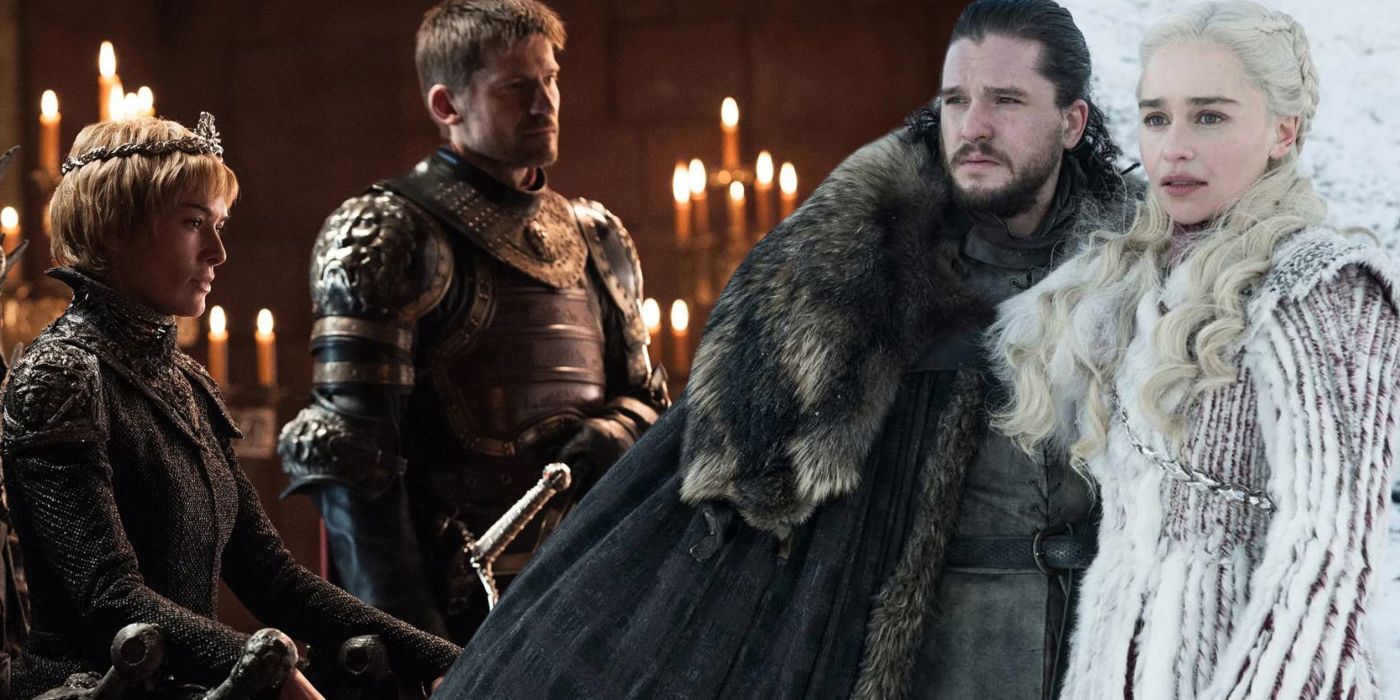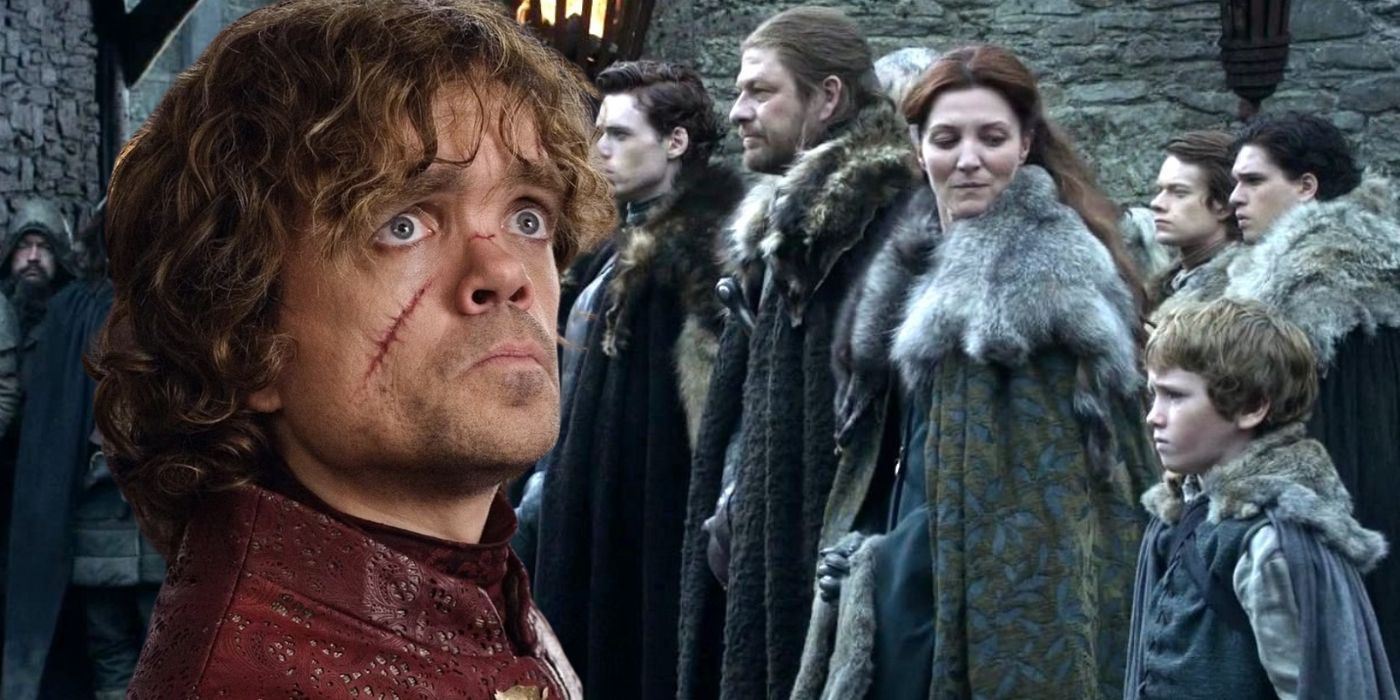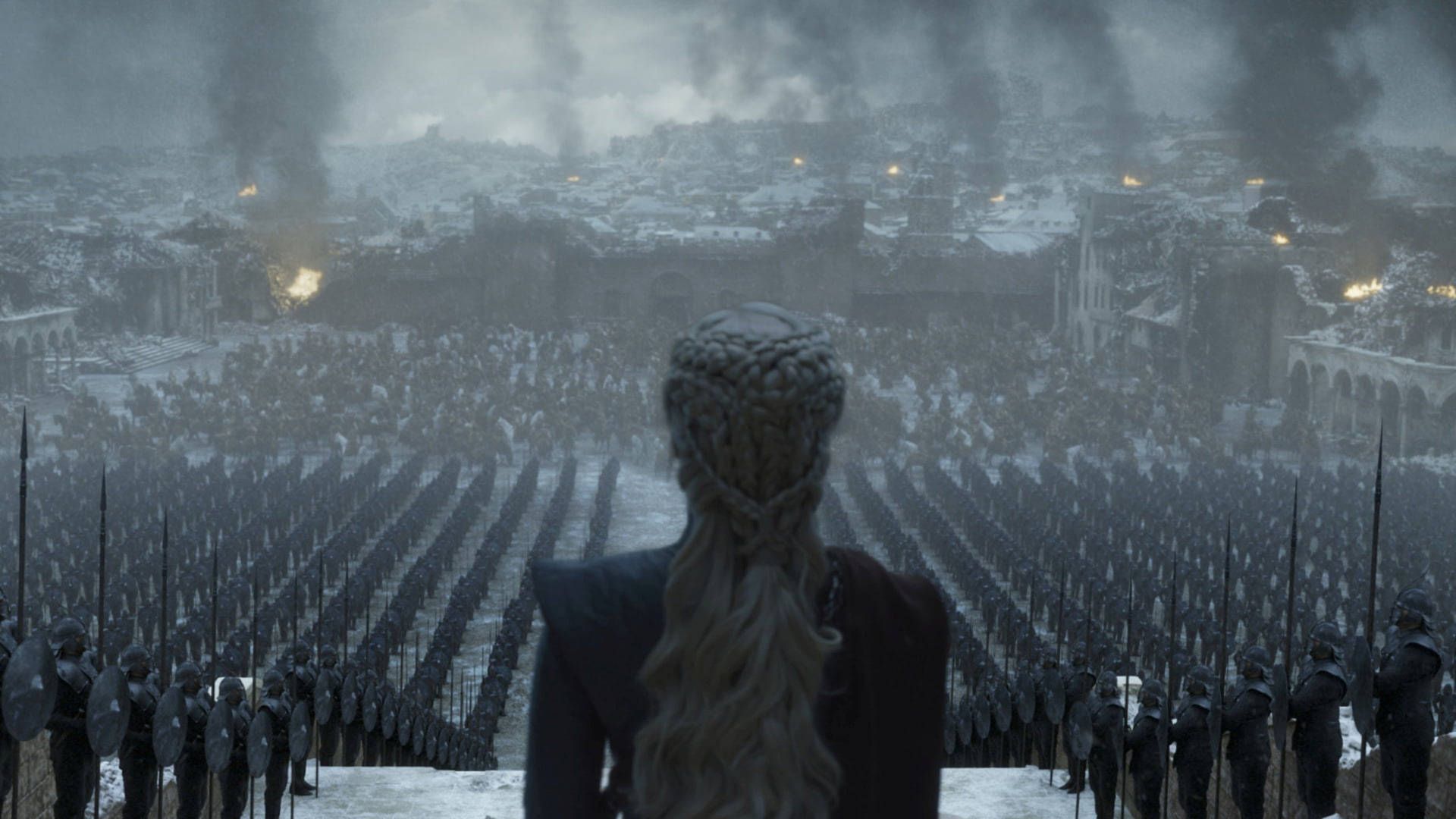If you are (or were) a fan of Game of Thrones and you’ve ever been on the internet, you’ve probably seen that meme comparing the HBO show’s run to a drawing of a horse that gets progressively sloppier. Since the finale aired and soured much of the fandom’s opinion of the series, the conventional wisdom has been that showrunners David Benioff and D. B. Weiss floundered once they ran out of source material and author George R. R. Martin became less involved. Specifically, viewers took issue with the decisions to have Daenerys reduce King’s Landing to ashes and to have Bran win the titular game of thrones.
I can’t defend the choice to name Westeros’s version of ChatGPT as King. Contrary to Tyrion’s rationale, Bran’s is among the show’s least interesting stories, and the writers laid little narrative track leading to that ending. That he foresees his ascension changes the character and the show for the worse. I can, however, defend Dany’s turn. Her descent into madness was effectively plotted and foreshadowed across all eight seasons, so much so that, upon a rewatch, it seems inevitable. Audiences didn’t respond well to it, not because it didn’t make sense, but because they weren’t ready to accept it.
Daenerys Targaryen Was Always a Problematic Queen
Neither fans nor characters should have put their full faith in the Mother of Dragons. Famously, there’s a 50/50 chance of madness when it comes to Targaryens… a saying from the books which makes its way into the show. Whether Dany was going to be the hero or villain was always a coin flip, and since it was pretty clear that Jon Snow was the hero, we should’ve been able to do the math. We’ll get back to their doomed relationship later.
For clarity’s sake, let’s define madness. Westeros doesn’t have the equivalent of modern psychological diagnoses, but in-universe, madness implies an unreliable concept of reality and some degree of ill intent. When the bells ring and the Dragon Queen sets King’s Landing aflame anyway, Emilia Clarke’s exquisitely precise facial acting leaves no doubt; she’s lost her grip and her last shred of mercy. Many viewers felt the change was too abrupt, but this could be because they’d come to love her and believe in her, just like her supporters on the show. And just like those supporters, they ignored the signs.
Martin and the showrunners use a classic storytelling tactic both to obscure Daenerys’s true nature and make her eventual fall from grace that much more tragic. She starts out vulnerable and innocent, and rises to become the most powerful force in the world. As far as she knows, her claim to the Throne is legitimate, and she’s easier to root for than Robert, Joffrey, Stannis, Tommen, and Cersei. As Tyrion laments to Jon in the finale, when she emerges from the flames unscathed and with three dragons, of course, she (and everyone else, including the audience) believes she’s destined for greatness.

Related
‘Game of Thrones’ Did This Character So Dirty and I’m Still Not Over It
Unfortunately, the books show us that there were many character arcs we never got to see play out in ‘Game of Thrones’ as they were meant to be.
The coin appeared to have landed on greatness when she made the abolition of slavery her pet project. But greatness isn’t goodness, and Dany displays some tendencies that ought to have given us pause as far back as Season 1. She’s unfazed when Drogo gives Viserys his golden crown, and she revels in the screams of the Lhazareen witch who tricked her. She threatens to burn Qarth to the ground in Season 2. By the time she gets to Meereen around the show’s halfway point, she’s crucifying, beheading, and torching anyone who stands in her way.
As Tyrion explains with the wisdom of hindsight, most of them had it coming. Who could protest when she uses spectacular violence against the slave masters who conspire against her in Season 5 or the Dothraki who capture her in Season 6? But some of her allies become more concerned when she executes the Tarlys in Season 7 and Varys in Season 8. They seem to realize, to their horror, that she resorts to fire and blood whether or not her cause is just.
Her Story Had To End in Fire and Blood
Cruelty only accounts for half of Targaryen madness. The other half is that a mad Targaryen can’t be reasoned with. Daenerys had asked Varys to speak truth to her should she ever need to hear it. He tries, fails, and dies shortly thereafter as she utters a dispassionate and perfunctory “dracarys.” In what Tyrion perceives as betrayal, Varys confesses that he’s worried about her mental state and would prefer to see Jon on the Throne. His last words are that he hopes he’s wrong, but we know he wasn’t.
Her compromised mental state is understandable. Powerful men have either wanted to kill her or use her for political gain since the day she was born. Her most trusted advisor was a palace spy. By the time she’s poised to take the Throne, she’s lost her husband, their child, half an army, Missandei, and two of her dragons. Daenerys is traumatized and alone, with a god complex and a weapon of mass destruction.

Related
The Most Important House Mottos From ‘Game of Thrones’ Explained and Ranked
‘Game of Thrones’ has some highly quotable lines, and perhaps none are more memorable than the words of the great houses.
In stark (excuse the pun) contrast, even after he’s risen from the dead, Jon exhibits almost no self-importance aside from his vow to be the shield that guards the realms of men. He grows up thinking he’s a bastard and can’t imagine a future in which he’s Lord of Winterfell, let alone the rightful King of the Seven Kingdoms. As he accumulates power, he accepts it begrudgingly. Though he suffers as much betrayal and loss, he doesn’t lose his humanity.
Their brief romantic tryst aside, we should’ve seen Jon and Daenerys as foils the whole time. It’s called A Song of Ice and Fire after all, and most of the songs in Game of Thrones don’t have happy endings. When the truth about Jon/Aegon VI comes out, it’s obvious to everyone that he has the better claim and temperament. But Sansa correctly deduces that the few people who know this secret are afraid of their Queen. Despite the fact that Westeros might tolerate marriage between an aunt and nephew, no one actually thinks they’ll rule together.
The crucial difference between Jon and Dany is that he doesn’t want the Throne, but she really does. She’s been obsessed with it to the point of paranoia since the end of Season 1, and she is the very thing she insists she’s fighting against for at least two seasons: a tyrant who only cared about bent knees. Daenerys would’ve remained paranoid about Jon, about the loyalty of Westeros’s smallfolk. Game of Thrones wasn’t going to end with an increasingly unlikable, unstable ruler in a half-scorched King’s Landing, surrounded by a small council exchanging worried glances. Apocalyptic madness was the logical completion of her arc. Her story ended as it had to… just not how we wanted it to.
Source link


















Add Comment